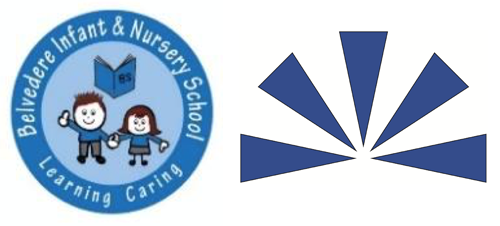Home | Learning | Curriculum | Subjects | History
History
Home | Learning | Curriculum | Subjects | History
History
Two
Schools
One
Vision
History
History Curriculum Rationale
Through the teaching of history at Belvedere Infant and Junior Schools, the children develop their interest, fascination and curiosity. History is of central importance to understanding the world and our place in it. The teaching of history helps pupils develop an awareness of the past, using common words and phrases relating to the passing of time. They learn where the people and events they study fit within a chronological framework and identify similarities and differences between ways of life in different periods. They use a wide vocabulary of everyday historical terms. They ask and answer questions, choosing and using parts of stories and other sources to show that they know and understand key features of events. They understand some of the ways in which we find out about the past and identify different ways in which it is represented.
Aim
The National Curriculum for History aims to ensure that all pupils are taught about:
- changes within living memory,
- events beyond living memory that are significant nationally or globally,
- the lives of significant individuals in the past who have contributed to national and international achievements and
- significant historical events, people and places in their own locality
Belvedere Infant and Junior Schools aims to ensure that children are experiencing a range of learning opportunities both inside and outside of the classroom to support the development of their learning skills and knowledge. Through developing pupil’s enjoyment, excitement and interest with enriching activities we are able build and encourage curiosity. Belvedere Infant School aims to deliver a challenging and ambitious curriculum to equip children with the skills, knowledge and understanding needed for their next stage of learning.
Curriculum/Scheme of Work
Belvedere Infant and Junior Schools use the International Primary Curriculum (IPC) along with National Curriculum objectives linked to half termly themes to support planning of a broad and balanced curriculum. The learning journey through the theme starts with a memorable experience or ‘entry point’ and a ‘knowledge harvest’ to find the appropriate starting point. This is followed by a development of skills and knowledge from a range of curriculum areas. The learning from the theme is applied through an ‘Exit Point’ at the end of each theme where children can demonstrate and apply their knowledge and skills. Teachers organise high-quality learning experiences within a theme giving the children opportunities to build upon their skills across the year.
Planning
History is planned using the IPC planning documents and adapted to suit the interests of the children such as studying local people of the past. A ‘Knowledge organiser’ is created and shared with the children. The units are looked at as a whole throughout the year to plan and show progression of lessons. Teachers consider the specific needs of the children and their experiences in order to challenge and differentiate appropriately. When planning, teachers consider opportunities for cross curricular links to build on prior knowledge or to apply and practice skills already taught. Teachers plan opportunities for collaborative learning, building resilience and allowing children to demonstrate deep knowledge, skills and understanding. Children are set tasks which require a variety of open-ended responses and tasks of increasing difficulty.
Teaching
Each week, there are at least two sessions allocated to the IPC theme. Some themes are based purely on geography objectives and others on history, whereas others have a mixture of the two as they interlink. There are key learning questions designed to develop and extend the children’s understanding. We encourage children to ask, as well as answer, questions related to their theme. Teachers have a focus on children developing their vocabulary, enquiry, observation, comparing and communication. Activities inspire the pupils to investigate the past and to help them raise their own questions. There are opportunities for children to investigate in order to become more independent learners with through child-led learning. Throughout all year groups, teachers provide stimulating lessons to encourage higher level responses using a range of teaching styles to ensure learning is accessible for all.
Through the teaching of history lessons, children are encouraged to think as historians, examine historical artefacts and have opportunities to visit historical locations. Pupils need to be able to gather information from a variety of sources, understand how aspects of history have impacted present day and make connections and draw conclusions between historical events. Pupils should be given the opportunity to place events, people and changes into chronological order and consider how these changes have affected the world.
Variation
All children are given the opportunity to access the curriculum through providing differentiated and ambitious lessons with appropriate challenge and support. All pupils will be challenged including the more able. For children with SEN, tasks are adjusted or pupils are given support to access tasks. Children are given different starting points for each lesson providing resources of different complexity and setting tasks of increasing difficulty. Using teacher assessment from previous lessons, some children may start independent tasks without teacher input, others may be set a challenge more suited to their needs. Tasks are set that allow for a variety of open-ended responses.
Assessment
Teachers will use the knowledge harvests completed by children at the beginning of each theme to assess what the children already know and revisit the knowledge harvests at the end of each theme for children to add to showing progression throughout the theme. Ongoing assessments will take place through the sequence of teaching with teachers making observations of pupils during lessons and through marking, questioning and discussion with pupils and feedback on their written work. Teachers also use multiple choice questions throughout lessons and quizzes at end points to recall and recap prior learning.


